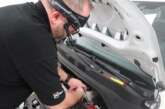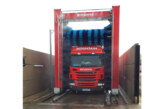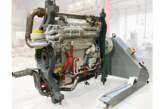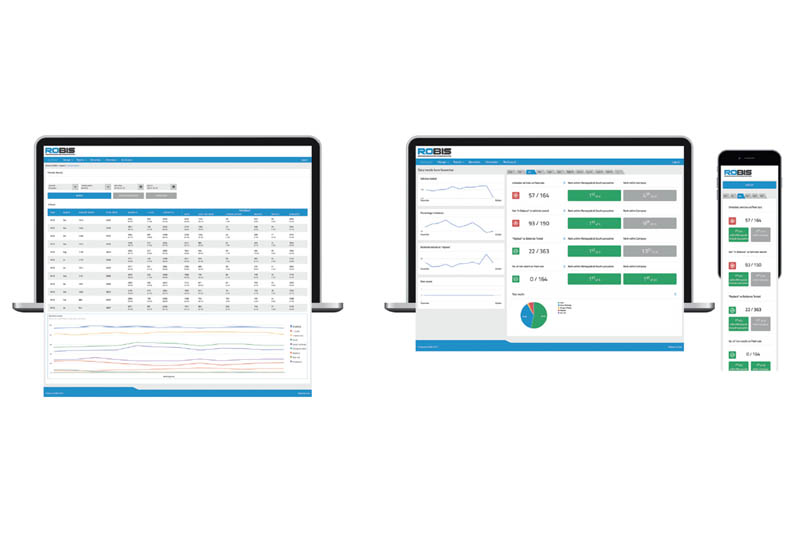
Ken Clark, Managing Director at Rotronics, discusses how you can leave bad habits behind when it comes to battery maintenance.
We know that roadside non-starts and battery replacements are day-in, day-out workshop issues. We know that workshop managers keep seeing additional battery-related costs creeping in. We also know that this is seen as a normal part of a workshop’s life. It does not need to be like this. Having the right battery management technology is a start; but using it correctly, understanding the testing information, and actioning the results is the clever bit that keeps your fleet on the road and saves you money.
Rotronics, the UK’s battery management experts and Midtronics and CTEK distributors, is joining CVW to outline the extent of the issue and provide expert advice for you to identify battery problems, put solutions into action, and maintain your batteries in excellent condition.
Best foot forward
This COVID period has highlighted the need for excellent battery management, as many of Rotronics’ customers have seen costs rise. They have battery-related issues, but aren’t quite sure what they are and what to do.
Via its web-based data reporting dashboard, Rotronics can show customers that many of their workshops are conducting battery tests but may not be doing enough to solve the root problems.
Issues are being ignored, in an approach unlike any other component on a vehicle, because (for now) the vehicle still starts. If all we do is identify the problem in a test, without remedial action, then a failing battery will not recover. What steps can be taken by fleet managers and owners to help their technical team take the right course and maintain the vehicle batteries?
After testing, technicians should remedy any problems identified during the test process to mitigate further issues. If drivers have a roadside battery problem, flag it up with the workshop when they get back to the yard. If there is a roadside defect and the vehicle has been jumpstarted, or a vehicle is in for inspection, the vehicle must be tested with actions put into place to remedy the problem.
Once the issues have been actioned, the batteries must be maintained by testing and charging regularly. A proactive CV operator with a desire to maintain batteries and reduce unnecessary costs will see a much brighter picture.
Rotronics has worked closely with a huge range of CV operators in recent months who have adopted its web-based ROBIS reporting system, gathering battery data from national/regional workshops to help analyse battery data speedily.
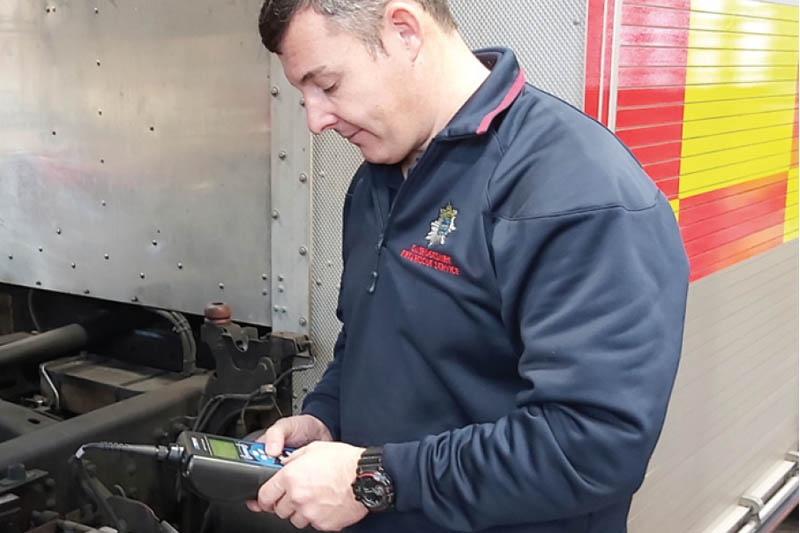
Prevention over cure
Rotronics knows from the millions of tests to date that, from a fleet of 100 commercial vehicles, most of the vehicles will have a battery issue at some stage in 12 months. Each Roadside breakdown accounts for around £300+ per breakdown. And, if the batteries are replaced, that’s another £300 plus downtime. That’s a big bill each year.
The company has seen great success in reducing costs and lengthening battery life with emergency service providers and fleet operators. Two years ago, it saw that batteries would be replaced every 12 months, with a range of defects in that time.
Defects would mean early replacement, costing £300 per battery set. Following a period of maintenance and a sustained battery management programme, battery life has been extended for two years or more, with a reduction in non-start defects.
Prevention is better than cure; a maintenance programme should be about testing and charging. A typical CV workshop will have a 28-day inspection programme and there will always be time to include charging into the programme. Workshops can’t allow themselves to not have time; you’re investing time now to save money later.
Rotronics says its customers have seen considerable value in ROBIS as an information source that provides visibility of fleet battery performance over a long period of time. ROBIS enables customers to see where workshops are letting themselves down and it’s a vital tool if the management team work remotely.

